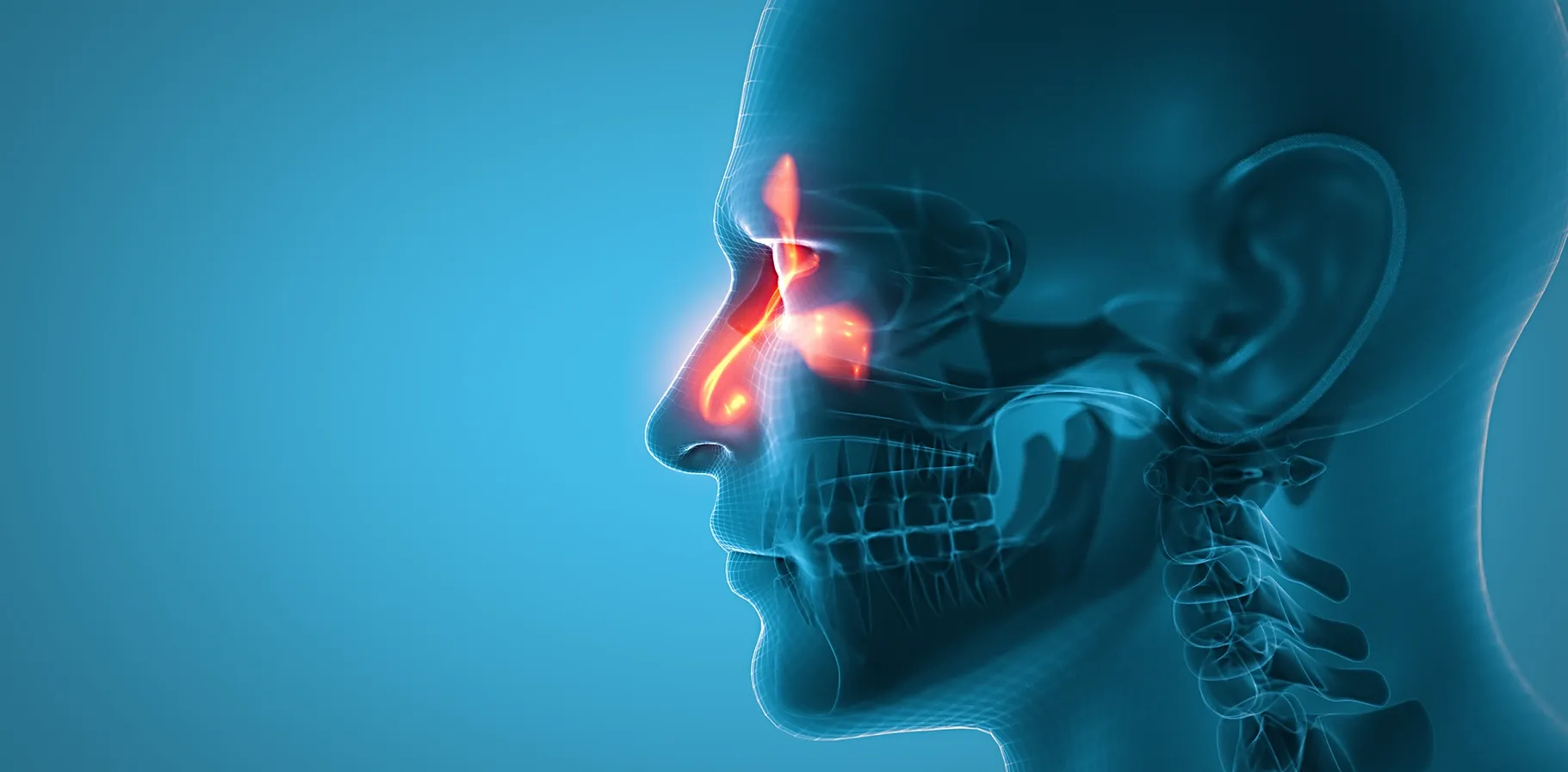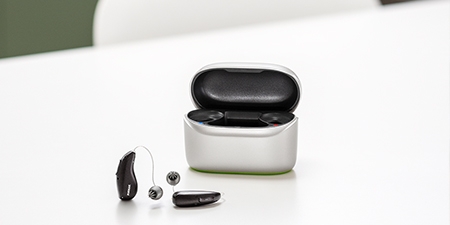Can Sinusitis Cause Ear Pain & Hearing Loss?

Can Sinusitis Cause Ear Pain & Hearing Loss?
10 min
Published September 3, 2025
Sinusitis is a common condition that occurs when the sinuses become inflamed and blocked, leading to a range of symptoms. However, many people may not realize that sinusitis can also affect their hearing and cause ear pain. In this article, we will explore the relationship between sinusitis and hearing, including the symptoms and causes of sinusitis, how sinusitis can cause earache and jaw pain, and whether it can cause hearing loss. We will also discuss some strategies to manage ear pain caused by sinus infections.
What Causes Sinusitis?
Bacterial, fungal or viral infections may cause sinusitis as a result of obstruction or swelling of the sinuses. Allergies and lengthy colds may also cause sinusitis, as they create inflammation and swelling of the bony plates in the nose (turbinates), which causes mucus to build up¹. Very often this swelling arises from contact with irritants like smoke, chlorine or dust.
What Are the 4 Main Symptoms of Sinusitis?
The four main symptoms of sinusitis include:
- Nasal congestion: Your nose may feel blocked or congested, making it difficult to breathe through your nose.
- Facial pain and pressure: You may experience pain and pressure in your forehead, cheeks, and around your eyes.
- Headache: You may have a headache that is centered around your forehead or eyes.
- Post-nasal drip: You may notice mucus dripping down the back of your throat, which can cause a sore throat and cough².
Does Sinusitis Cause Earache and Jaw Pain?
Yes, sinusitis can cause earache and jaw pain. This is because the sinuses and ears are connected by a narrow channel called the Eustachian tube. When the sinuses become inflamed and blocked, the Eustachian tube may also become blocked, leading to a buildup of pressure in the ear. This can cause ear pain, and in some cases, sinusitis can also cause pain and tenderness in the jaw.
What Does Sinus Ear Pain Feel Like?
Sinus ear pain can feel like a dull, aching pressure or fullness in the ear. The pain may also be described as a sharp, stabbing sensation, and it may worsen when you bend over or lie down. Sinus ear pain can also be accompanied by other symptoms such as dizziness, and tinnitus (ringing in the ears).
How Long Does Sinusitis Ear Pain Last?
The duration of ear pain caused by sinusitis can vary depending on the severity of the infection and the individual's immune system. In some cases, ear pain may improve within a few days of starting treatment. However, in more severe cases or acute sinusitis, it may take several weeks for the pain to fully resolve.
Can Sinusitis Cause Hearing Loss?
While sinusitis can cause ear pain and a feeling of fullness in the ear, it is generally not associated with permanent hearing loss. However, in rare cases, sinusitis can lead to a condition called otitis media³, which is an infection of the middle ear. This can cause temporary hearing loss, as the infected fluid build up in the middle ear blocks the passage of sound to the inner ear. This usually resolves once the infection has been treated. If otitis media is not treated promptly and the fluid accumulation creates even more ear pressure, the eardrum may even rupture to allow the fluid to secrete out into the ear canal.
What Helps Ear Pain From Sinus Infection?
If you are experiencing ear pain due to a sinus infection, there are several things you can do to help alleviate the pain:
- Use a warm compress: Applying a warm compress to the affected ear can help to soothe pain and reduce inflammation.
- Try over-the-counter pain relievers: Over-the-counter pain relievers such as acetaminophen or ibuprofen can help to reduce pain and inflammation.
- Use a saline nasal spray: A saline nasal spray can help to clear mucus and relieve congestion, which can help to alleviate ear pain.
- Stay hydrated: Drinking plenty of fluids can help to thin mucus and reduce congestion.
Summary
Sinusitis is a common condition that can cause a range of symptoms, including ear pain and a feeling of fullness in the ear. If you are experiencing ear pain or other symptoms of sinusitis, it is important to see a healthcare professional for an accurate diagnosis and appropriate treatment.
Most cases of sinusitis-related ear pain can be managed with conservative measures such as warm compresses, pain relievers, and saline nasal sprays. While sinusitis can be uncomfortable, it is generally not associated with long-term hearing loss.
References
¹ Healthwise Staff. (2022). Enlarged Turbinates: Care Instructions. Retrieved from https://myhealth.alberta.ca/Health/aftercareinformation/pages/conditions.aspx?hwid=uh5087#:~:text=The%20turbinates%20are%20thin%2C%20bony,overuse%20of%20decongestant%20nasal%20sprays, on May 16, 2023.
² American Academy of Otolaryngology - Head and Neck Surgery. (2019). Sinusitis. Retrieved from https://www.enthealth.org/conditions/sinusitis/, on May 16, 2023.
³ Mayo Clinic. (2021). Middle ear infection (otitis media). Retrieved from https://www.mayoclinic.org/diseases-conditions/acute-otitis-media/symptoms-causes/syc-20351602, on May 16, 2023.




